There is a great deal of media surrounding Rice, debate about what should happen to him, about whether the NFL’s actions were right, wrong, justified, fair or unfair, sexist treatment, and speculation about his relationship with his wife.
I’m not going to talk about that. I’m going to talk about what we want. We want a world where people are nicer to one another, a world where no one spits in another person’s face, where people do not hit each other, and even a world where people don’t drink to the point where they behave in ways they later regret.
Isn’t that what we all want?
I’m going to walk through the scenario that most people are at least somewhat familiar with and explain it in terms of human thriving–it’s causes and what hinders it.
First, both Ray and Janay had been drinking.
If they had been happy, they would not have drank to the extent they did. Hang in there and I’ll explain my comments, step-by-step, in a way that most people will be able to follow.
Why do I say that if they were happy they would not have been drinking to that extent?
Alcohol is a depressant, which means it slows the function of the central nervous system. Alcohol actually blocks some of the messages trying to get to the brain. This alters a person’s perceptions, emotions, movement, vision, and hearing.
When a person is truly happy, drinking makes him (or her) feel worse.
I’m not sure if you’ve noticed but everything humans do is because we believe it will make us feel better. We may believe that paying our bills will feel better than having our car repossessed, it does not mean we enjoy paying the bill–it means we judge paying the bill as the better feeling of the two alternatives. Or it may be that the person holds herself to a standard that says she keeps her word and so maintaining that standard by paying her bills feels better than not doing so. Some people even find enjoyment in paying their bills because they remember a time when they could not easily pay them.
Or, it could be that we don’t do something because we believe we will feel better not doing it than we would if we did it–even if we want to do it in that moment. Think about something you chose not to do because you knew you’d pay a price by feeling guilty (or worse) if you did it. You chose not to do that thing because you believed you would feel better if you did not do it. It could be a piece of chocolate cake you politely refused or advances from someone you found attractive while on a business trip or even an opportunity to take something that did not belong to you.
We just innately lean in the direction of what feels better to us.
It is truly the way we’re wired. It is not even a conscious decision most of the time.
It is not just what would feel best right now. All sorts of variables come into play and they take into account our short and long-term goals. It is not just about pleasure seeking in the sense of physical pleasure. Goals such as good relationships, maintaining integrity, good reputation, being good examples, and thousands of other goals that impact how thoughts, words, and actions feel to us are part of the equation that determines what feels best to us.
But, for sure, when someone is truly, deeply happy, drinking alcohol to the point of intoxication feels worse than not drinking. The reason is because when you’re that happy life feels good so the depressant effect of alcohol dulls the good feelings you’re experiencing from life itself. Drinking more than a glass or so of wine will feel worse to someone who is truly happy.
I can’t prove it to you, but if you get really happy, you can prove it to yourself.
Happiness
A lot of people can’t imagine someone who has the income and career Rice had before February 15th being unhappy but if it isn’t already obvious, you need to accept that income, fame, and other often sought advantageous circumstances are not the root cause of happiness. The sooner the world stops believing that achievements are the cause of, or required for happiness, the sooner the real root cause will be recognized and help more people reach true happiness. If you doubt that acclaim and high income are not what causes happiness you’re not paying attention. If they were the cause, the world would not have lost one of it’s living treasures last month.
The root cause of happiness is skill based. Skills that individuals use to help them use their mind in ways that support positive expectations and hopefulness about life are the root cause of happiness.
That using simple and practical skills increases happiness is another thing I cannot prove to you but it is blatantly obvious if you learn how to use the skills. You have to experience it to believe it, but when you experience it, you believe.
Talking about happiness and behavior may seem to be off topic but i assure you it is not. I’ve converted a White Paper on the subject into a blog to make it more accessible to readers.
Empowerment
There is another aspect of happiness that you need to understand to see the connection to this behavior. The more empowered someone feels, the happier the person is. The less empowered someone feels, the less happy the person is. Let’s jog back to the earlier statement that everything we do is to feel better (or not to feel worse). Since we are always doing what we believe will make us happier (or not less happy) we are always attempting to remain stable in our level of perceived power or increase it.
If this is not resonating with you at some level, it might help if you read this article on the root cause of senseless tragedies before continuing. The real cause of happiness is different than most of us have been taught. The real cause of crime and undesirable behaviors is not that some people are good and others are evil. The good and evil explanation can help people separate themselves from those who commit abhorrent actions–something that makes them feel safer and as if they could never do those things. But it misdirects our attention from the real cause, thereby delaying and interfering with our ability to actually prevent such actions on a wide scale.
The truth is that when we feel emotionally good, our behavior is better and when we feel emotionally bad, our behavior worsens.
Think about a time when you were already in a bad mood (or overly tired) and you overreacted in a way you later regretted. I think almost everyone has experienced this at some point. Some people experience it on an almost daily basis. Sometimes the behavior you later regret is something that does not cause a great deal of harm and is easily fixable (sometimes with a side of humble pie). It might just be a snide comment when you later wish you’d been nicer. Sometimes it is an unkind word to someone you care about. Sometimes it is something with deeper ramifications.
There is a combination of factors that impact how bad the behavior is when a person feels less positive emotion than they want to in that moment. One of those factors is how much worse the person feels. Another factor is how that person habitually responds. Another factor is what is “the norm” in the environment the person is accustomed to. There are other factors but these are enough to move forward.
I just Goggled and read about Ray Rice’s early years. I did not know anything about his early years before I wrote the prior paragraph but I would have bet a large amount of money that his early years included strife, so I was not surprised to learn that his Father was murdered when Ray was 1-year-old or that a cousin who became a father figure to him was lost to him a decade later in a car accident. Nor was I surprised to learn that his early years involved financial strain. His actions on February 15th were enough for someone who understands the relationship between behavior and emotional state to discern that there would be adversity in his childhood.
The details could have varied significantly. Poverty and the loss of a parent is not required to produce someone who will behave in that way. A parent who is physically present but who withholds love, or hides it behind strict and punitive behaviors attempting to “make a man” out of a boy who the parent believes is overly sensitive, can do the same. There are many paths, but a childhood that creates a deep and stable sense of worthiness does not lead to that type of behavior–a childhood where that inner sense of worthiness is not developed can lead to undesired behaviors. Paths that make a person feel something is missing, that leave an empty feeling inside, lead to undesirable behaviors.
It may be easier to look at it from the other direction. A man who is confident in his manhood and capable of expressing love and feeling loved would not respond in the way Ray did in that elevator. Ray was not in danger of physical harm, but he was experiencing pain–psychological pain. Psychological pain can be worse than physical pain. Our society does not accept this yet but it will-someday. It is not people who suffer from painful illnesses (arthritis, gout, back injuries, cancer) who commit horrendous crimes. It is those who have suffered long-term psychological pain who commit those senseless tragedies. (I am not referring to Ray Rice here as far as the senseless tragedies–I am referring mostly to murder-suicides and those who commit multiple homicides.)
You have to understand that someone can be loved but not be able to feel loved because he does not love himself. Unless and until you think favorably about yourself, all the love in the world can be sent your way but you cannot receive it. I elaborate on this in more depth in When Only You Can Prevent Suicide which will be released in October, but for now, can you see that Robin Williams would not have been depressed if he truly felt loved? Being loved and being able to feel loved are two totally separate things.
The same is true of feeling empowered. Someone can have a $35 million dollar contract and be one of the best running backs around, but still not feel good deep inside. Ray Rice did not have a childhood, by age 8 he was working to help his Mom support the family. I’m not making excuses for his behavior. I am attempting to demonstrate two things. One is that it is possible to teach Ray Rice skills that would ensure he would never again behave in that way. Skills that he did not have the opportunity to learn. In fact, most people do not learn these skills.
A Path Built on False Premises
The way our society is currently structured, few people adjust their happiness level using skills and their sense of empowerment is not increased using pro-social, skill-based methods. Humanity created a much harder, false path to greater empowerment and happiness. That path tells citizens that money and success are the path to feeling empowered and happiness. In many ways this makes it worse for those who achieve either one. While a person is striving for the things society teaches can lead to happiness and a sense of empowerment (money and success) they can feel hopeful that when they achieve their goals, that emptiness inside will end. When reaching their goals does not provide the sense of fulfillment they desire, it can be even worse. Society expects them to be happy. Those who have not yet reached success still believe that the successful person should feel fulfilled and happy. So society now judges the person more harshly if the person acts out in ways that are socially unacceptable. Yet, those behaviors are symptoms of someone who does not feel good on the inside.
Think about it. While I believe all would agree that we do not want any adult to hit another adult and especially not a strong man hitting a woman (or a much smaller man, or a child), is Ray Rice being judged the same way he would if he had never achieved his position at Rutgers and then in the NFL? If he had dropped out of high school and was working a minimum wage job somewhere, with the same history, would we not be less judgmental. We would. Why? Because in many ways we would see it as inevitable–the difficult childhood, the poverty, the apparent dead end trajectory of his future. We still would not condone it, but we would feel we understood it better. Isn’t his perceived success playing a role in the public judgment of his actions that day?
Most people think he had what almost everyone wants–financial success and a brilliant career. But that is not what we really want. Oh, it’s great to have it–if we feel fulfilled inside. But when we sought it for that feeling and then the feeling does not come, it is worse than still being hopeful that if we manage to achieve it we will feel better.
We want financial success and a good career because we believe they will make us feel better.
Let me ask you this. In our society, when a person is super successful with these external measures, but the person still feels that unfulfilled emptiness inside: Who do they have to complain to about it? Who will even listen? Who will lend a sympathetic ear? Almost no one–because they won’t be able to understand why he does not feel that way. They still believe that what he has accomplished should make him feel fulfilled and empowered. They believe that if they had what he has, they would feel fulfilled and empowered. They’re living in a delusion society has created and reinforces in many ways every day.
A belief is just a thought you’ve thought long enough until you develop a belief.
Most of us have been taught to believe that financial success will lead to happiness and a sense of fulfillment.
That this is a lie does not matter.
When you believe something, your brain interprets the world as if the belief is true.
How many of those with great achievements–athletes, comedians, actors and actresses, businessmen and women, scientists, artists have to demonstrate to us that their phenomenal success in their career and financially has not brought them happiness or a sense of fulfillment before society throws out this false belief? The Galileo Effect is still going strong.
With my understanding of human thriving, I see things in an opposite way than most do. I’ve been studying and working with human thriving for two decades now. I think Ray Rice was more likely to behave the way he did on February 15th because he had achieved fame. No–don’t assign the reason society tends to give for that–arrogance that he is so powerful that he won’t have to pay a price. That is not why I believe as I do.
Achieving fame and financial success but not getting the true desire, the sense of fulfillment inside, made him feel worse (emotionally) than he felt when he was still striving for those things and believed they would fill that void inside. Our society does not shine a bright light on the path that leads to the sense of fulfillment. In fact, we light up another path and fill it with signs that say, “Come this way for fulfillment and happiness.” Those road signs are wrong.
There is nothing wrong with financial success. There is nothing wrong with a successful career. But neither will give what everyone truly desires–happiness and a sense of fulfillment. It is possible to have the sense of fulfillment and happiness with or without financial success and/or a successful career. Happiness and fulfillment come from an inner satisfaction that is achieved by using one’s mind in a health supporting manner. It does not require high intelligence to do it. In fact .
Achieving the level of success Ray Rice achieved and not simultaneously finding the sense of fulfillment he expected (because society teaches us financial/career success leads to fulfillment) would have made him feel worse. In our society, he would not have known where to turn. Many would have ridiculed him if he had publicly admitted that he was not happy despite his success on the field and his ability to help his mom–one of the motivations that helped him achieve his career success. Did he talk about this with his mom? I don’t know but I doubt it. He actually seems like a caring man (despite the action on February 15th) and he might have felt his mom would feel guilty if he did all that to help her and that he was unhappy. He could have felt she might feel guilty if she knew and remained quiet to spare her. I don’t know Ray Rice. I just understand a great deal about human thriving and inner motivations. This may or may not be true, but it is a definite possibility.
So, What Do We Really Want?
Don’t we want to be sure he does not commit another crime? Isn’t that one of the things we want? I’ll get to the other point soon. What I am saying about Ray Rice goes for every person who commits a crime. We want to be sure they will never do it again.
But our society attempts to do that by punishing the person. In the paradigm where we do things (or don’t do things) because we believe we will feel better, punishment is meant to make it feel worse (fear of punishment) to do things society does not want individuals to do. It is one method of preventing undesired behaviors, but it is not an effective one.
Recidivism is a tendency to relapse into a previous condition or mode of behavior; especially: relapse into criminal behavior.
About two-thirds (67.8%) of released prisoners were arrested for a new crime within 3 years, and three-quarters (76.6%) were arrested within 5 years.
Punishment fails in at least 76.6% of the cases and I would bet dollars to donuts that it fails even more often in actually deterring undesired behaviors. Some of the 23.4% who do not go back to prison just become better at not being caught and some of them die before they are caught.
About 7% of the US Population is incarcerated. About 14% of adults in the U.S. are on probation or parole.
I do not believe society wants 7% of the population incarcerated in institutions with revolving doors. Read on for a better solution.
What we (as a society) are doing is not working. The solution is not more laws or more prisons. The solution is to treat the root cause of crime instead of symptoms. Our criminal justice system is much like our current medical system, it treats symptoms instead of the root cause.
 Think about this, people who feel good treat other people better. People who feel bad treat other people worse.
Think about this, people who feel good treat other people better. People who feel bad treat other people worse.
Does punishment make people feel better?
Does punishment make people feel worse?
Is punishment the way to achieve society’s goals?
Yes, sometimes an individual is such a potential menace to society in his or her current mental/emotional state that incarceration is necessary to protect others from the likelihood the person will commit a violent act. I’m not saying that incarceration is unnecessary in some situations.
But we’ve expanded it to be the default response to almost all crime. We’ve focused our efforts on punishment which simply increases the likelihood that person will commit another crime.
There are poor people who do not commit crimes.
In fact, there are people of every color and religion and ethnic heritage and any other label that society slaps on people to separate us from one another who do not commit crimes.
There are rich people who commit crimes.
In all cases, crime is the result of someone who feels disempowered attempting to feel more empowered or to escape from the disempowered feelings.
Let’s look at the drug addict. Happy people do not become drug addicts. They do not want to escape from reality. Happy people are less susceptible to peer pressure because peer pressure is actually just a form of punishment. “I’ll make you feel so bad that agreeing to what I want from you will feel better than the punishment of ostracization.” When someone feels happy and peaceful inside they do not require outsiders to validate their worth, reducing the power of peer pressure.
When the drug addict steals to support her habit, she is doing so because she believe that having money to buy drugs that help her not feel the inner pain will make her feel better.
Let’s look at white collar crime, which increases substantially when the economy goes down, because people are more afraid than they are in a good economy. The increased fear of losing something they’ve worked hard for feels worse than the potential of being caught. When they aren’t afraid, the fear of being caught feels worse (because the gain does not feel as important as the potential loss.)
When someone achieves success but does not gain the sense of fulfillment that was expected, the person actually feels worse. Their sense of empowerment declines because they have attained what they really wanted. The person feels more vulnerable, which translates into protecting the sense of empowerment they have left. A threat to their remaining sense of empowerment becomes a bigger deal that it would have been before they were successful.
None, or very little, of this reasoning may be conscious.
Someone who is confident in himself who is spit upon and hit by a woman who claims she loves him would make the person see her as needing help. From the fulfilled position, her behavior does not make him question his own value or worth. His sense of self is stable.
Someone who is already feeling vulnerable who is spit upon and hit by a woman who claims she loves him makes him feel as if he is losing what little sense of empowerment he has left. It is a bigger threat and the response Ray Rice gave on February 15th demonstrates that he felt threatened (emotionally) by her behavior.
Many people are calling for Rice to go to anger management training. While anger management programs help some people, I believe their greatest contribution is the nod they give to the fact that our behavior is not fixed, that it can change. But the techniques typically used (relaxation, cognitive restructuring, problem solving and improving communication strategies) don’t get to the heart of the problem. The techniques used in typical anger management programs are directed at the symptoms.
Behavior change at the level of automatic response is not easily done at the symptom level because the underlying level of happiness and empowerment, or lack thereof, is not changed. Anger management training may help the person control the automatic urge, but the urge is still there. Add some extra stress, illness, or lack of sleep and the ability to control the urge declines rapidly. Anger management is probably better than prison for many people, but it far from the optimal solution.
Skill based techniques that increase happiness and that inner sense of well-being are far more effective. The reason is they address the root cause of the problem, not just symptoms. The urges one feels at higher levels of fulfillment/happiness/empowerment are different than the ones the same person feels at lower levels. Once an individual learns he or she can improve those inner feelings, using the skills to feel better is a far better choice than socially undesired behaviors. What Ray Rice wanted when he hit Janay was to feel better. If he knew how to use skills that would enable him to feel better, he would have used those. In fact, he probably would not have been intoxicated in the first place–something that added to the likelihood of his acting in the way he did.
Both the intoxication and the hitting are symptoms of inner unhappiness.
Society, Ray Rice, and thousands of others would be best served by learning these skills.
I don’t know how the Ray Rice story will end, but I do know what would be better for everyone involved than the typical responses.
Our society has criminalized the symptoms of inner unhappiness. If we begin helping society understand how to achieve those desires that are within us all–happiness and a sense of fulfillment–criminals will begin to disappear. Truly happy people do not commit crimes.
Isn’t what we really want a world where people behave in socially acceptable ways? Don’t we want a society where people are nice to one another? If we want this, we have to begin addressing the root cause and not just the symptoms.
Treating symptoms has increased our prison population substantially and created an environment that is not comfortable for many who live in fear.
It’s time to get out of the box and apply techniques that lead to greater human thriving, techniques based on scientific principles.
It is time to create a better world for everyone.
Do you want to help? I am willing to help you help. I will donate one class where the skills that lead to increased happiness and inner fulfillment and reduced stress are taught to individuals who would benefit from anger management training for everyone who registers for my March 2015 class. The class will be held in Charlotte, North Carolina the week of April 19th.
If the number of registrations exceed 1,000, I will double the offer and give two free programs for every program purchased.



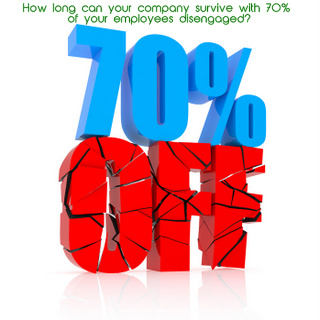






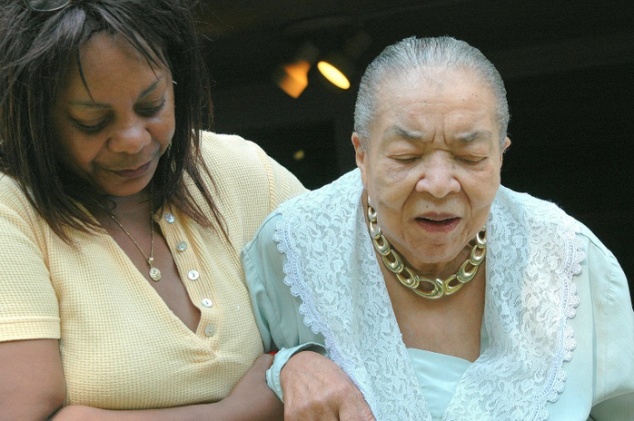
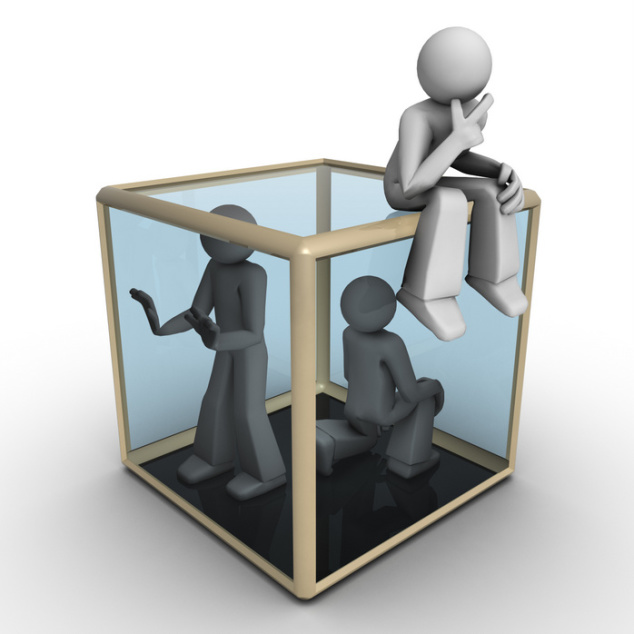


 We all want to be joyful, but if you look around yourself in church, you’ll see that we are generally not any more joyful than the people outside the church. We have good days and bad days, ups and downs, and our mood tends to be a product of our circumstances.
We all want to be joyful, but if you look around yourself in church, you’ll see that we are generally not any more joyful than the people outside the church. We have good days and bad days, ups and downs, and our mood tends to be a product of our circumstances.


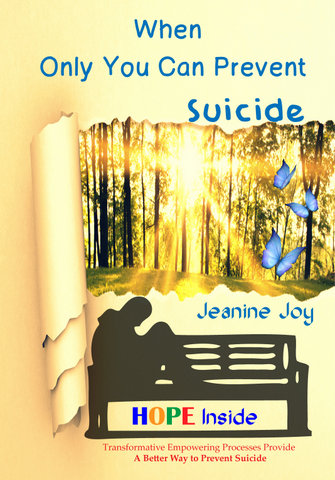
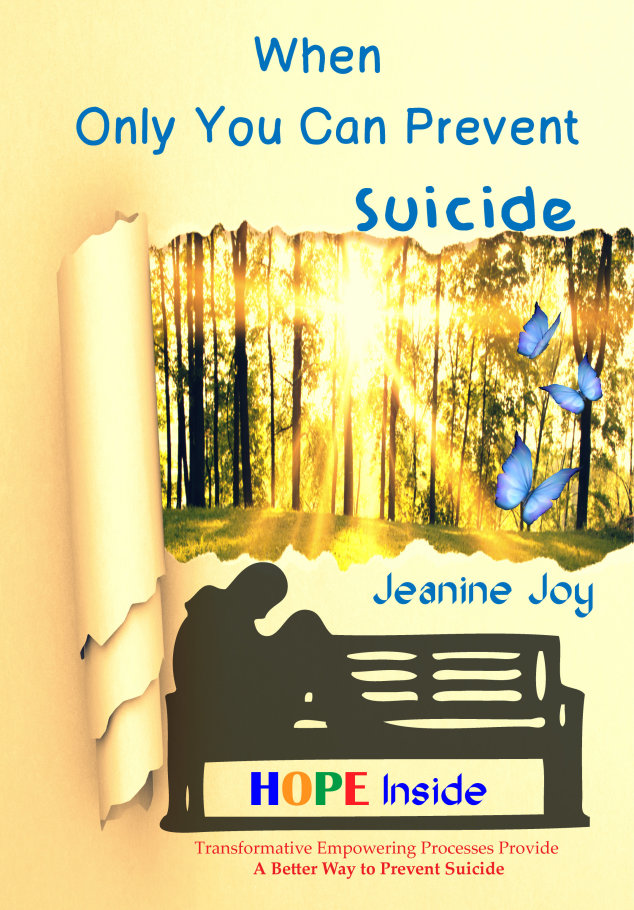
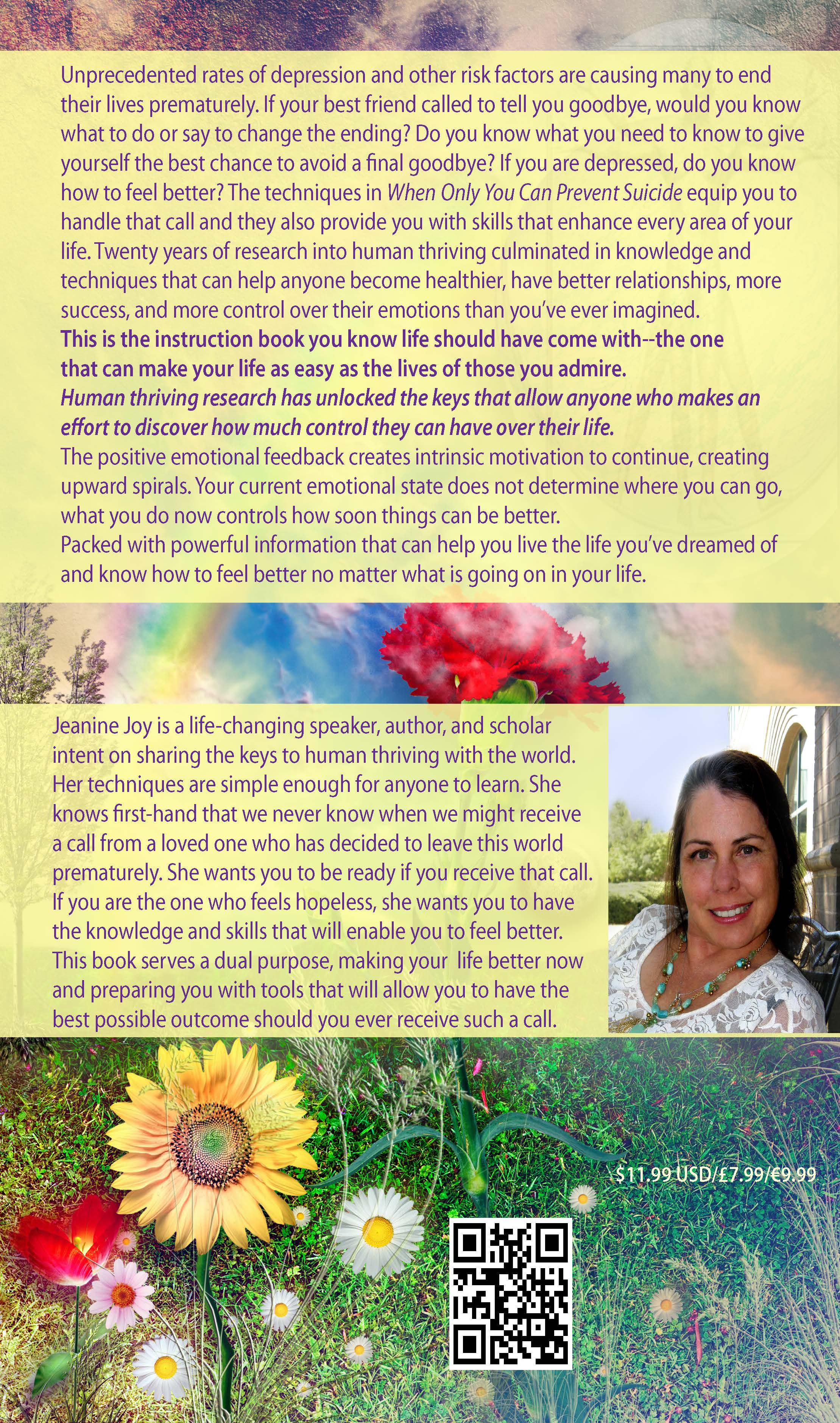
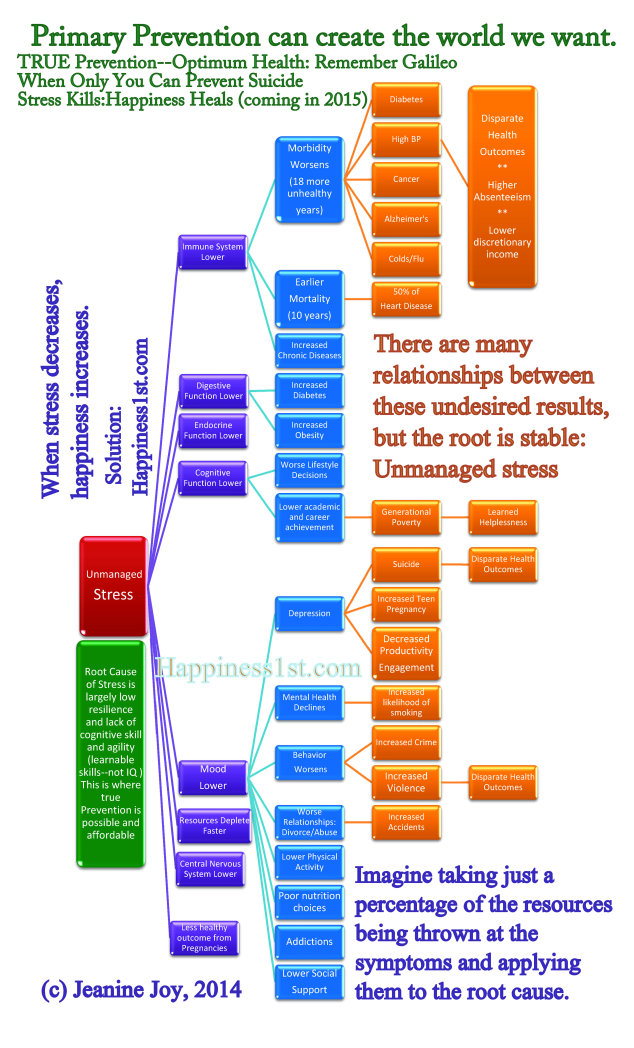
 society does not realize it is because we’ve been misled about some very basic things that affect our health and wellbeing. Not misled on purpose, but because people have believed a variety of false premises for generations and only now is science demonstrating the falsity of those premises loud enough that some people are beginning to recognize it.
society does not realize it is because we’ve been misled about some very basic things that affect our health and wellbeing. Not misled on purpose, but because people have believed a variety of false premises for generations and only now is science demonstrating the falsity of those premises loud enough that some people are beginning to recognize it.




